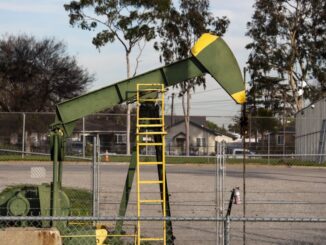
Afederal appeals court rejected a petition Tuesday to rehear a case related to a natural gas ban proposed by the City of Berkeley, California, which the panel ruled was illegal last year.
The U.S. Court of Appeals for the Ninth Circuit ultimately denied Berkeley’s petition for rehearing en banc — a motion that received support from the Biden administration, Democratic-led states and environmentalists — after it failed to receive majority support from the court’s non-recused active judges. Berkeley filed the motion last year after the court in April that a Berkeley law banning natural gas pipes in new construction violated federal statute.
Following the panel’s filing Tuesday, the Air-Conditioning, Heating, and Refrigeration Institute (AHRI), which had argued Berkeley’s law was illegal, applauded the court for ensuring consumer choice.
“Naturally, AHRI and particularly our member companies that manufacture products and equipment that use natural gas, are very pleased that the full court denied Berkeley’s appeal, thereby allowing the residents of Berkeley, and likely elsewhere, to continue to have choices with respect to energy sources for home and water heating,” AHRI President and CEO Stephen Yurek said in a statement.
“We look forward to continuing to work with states and localities to formulate solutions that help them meet their energy conservation and emission reduction goals without unduly impacting consumer health, safety, comfort, and productivity,” Yurek added.
In July 2019, Berkeley’s city council passed the ban which was set to go into effect in January 2020, making the city the first in the nation to approve such a measure. Berkeley Councilwoman Kate Harrison, who authored the legislation, said at the time that it was part of the city’s effort to take “more drastic action” on climate change and curb greenhouse gas emissions.
However, months after it was approved, the California Restaurant Association (CRA) filed a federal lawsuit challenging the city’s ability to pass a law banning new natural gas hookups. After a lower court ruled in favor of Berkeley in July 2021, the CRA filed an appeal, leading to the Ninth Circuit ruling in April.
The Ninth Circuit concluded that Berkeley’s law violated the federal Energy Policy and Conservation Act (EPCA) of 1975, which prevents local regulations from impacting the energy use of natural gas appliances.
“Instead of directly banning those appliances in new buildings, Berkeley took a more circuitous route to the same result,” Judge Patrick Bumatay wrote in the opinion of the court. “It enacted a building code that prohibits natural gas piping into those buildings, rendering the gas appliances useless.”
“In sum, Berkeley can’t bypass preemption by banning natural gas piping within buildings rather than banning natural gas products themselves,” he continued in the ruling. “EPCA thus preempts the Ordinance’s effect on covered products.”
CRA President and CEO Jot Condie said at the time that Berkeley’s attempt to ban natural gas hookups was “an overreaching measure beyond the scope of any city.”
After Berkeley then filed its petition for rehearing, the Department of Justice (DOJ) in June filed an amicus brief in support of the city’s gas hookup ban.
“The panel opinion in this case upended those settled expectations. It held that a particular municipal ordinance addressing a health and safety concern identified by local elected leaders is preempted by the Act — even though the ordinance does not regulate the energy efficiency, energy use, or water use of a covered product,” the DOJ stated in the brief.
“The ordinance prohibits the installation of certain energy infrastructure in new construction,” it continued. “It thereby affects, indirectly, the circumstances in which some products may be used in some locations. The panel did not explain why this ordinance’s indirect effects warranted preemption or why other health and safety ordinances would not.”
The case has drawn the attention of industry groups that supported CRA — including the American Gas Association and AHRI — and environmental groups and other jurisdictions across the country that supported Berkeley’s ordinance, including the National League of Cities, California, Maryland, New York, Oregon, Washington, D.C., and New York City.
ENB Top News
ENB
Energy Dashboard
ENB Podcast
ENB Substack






